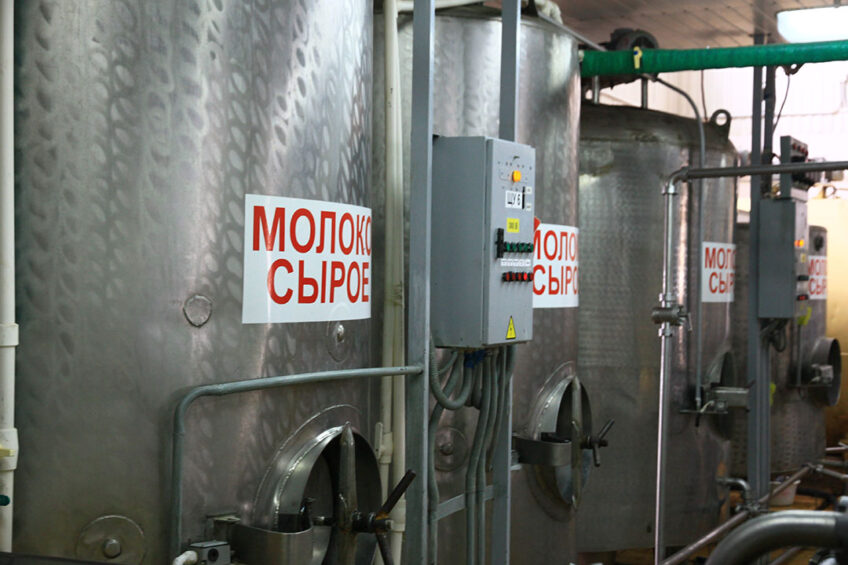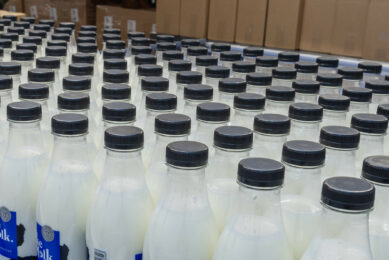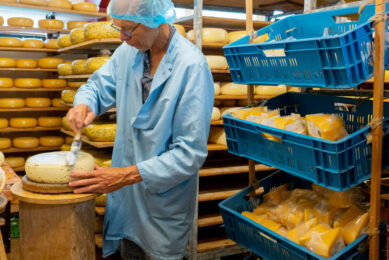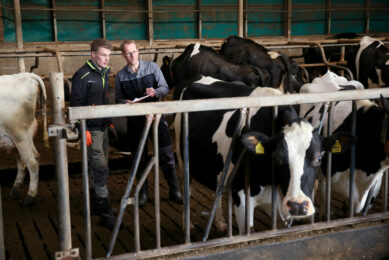New subsidy for dairy producers in Russia

The Russian Agricultural Ministry has published a draft regulation introducing a brand-new subsidy for milk processing plants.
If adopted, it could support Russian dairy companies, which are caught between the rising costs and the price regulation on the domestic market.
Expanding state aid
The new subsidy is also projected to push the level of state support to new heights. In 2020, the Russian government allocated Rub33.3 billion ($441 million) to support the domestic dairy industry. The state aid has nearly doubled since 2015, although the last year’s level was slightly lower compared to 2019, which was the highest ever.

The Russian treasury spent Rub4.5 billion ($59 million) to subsidise interest rates on loans to dairy companies and Rub9.4 billion ($124 million) as a production subsidy paid to farmers for every litre of raw milk.
 Global dairy market:
Global dairy market:
Overview of prices for: raw milk, dry whey, skimmed milk powder, cheese and butter, as well as global dairy trade and world prices for dairy products. Stay up-to-date…
In addition, Rub4.6 billion ($63 million) was paid to reimburse direct costs from the building and modernisation of new milk farms, Rub4.6 billion ($63 million) to support the domestic breeding segment, Rub7.3 billion ($96 million) to subsidise interest rate on short-term loans, and Rub3 billion ($3 billion) to soft loans for the Russian dairy producers.
2020 was not the worst year, and the production dynamics were positive, but this year is expected to be more challenging.”
In addition, the government has again exempted dairy producers from VAT on young animals and breeding material up until 2022. “The situation with the state aid in the Russian dairy industry remains stable, compared to other [livestock] segments. In 2020, we saw an increase in the state support level on several directions,” Artem Belov, chairman of the Russian Union of dairy producers Soyuzmoloko, told the Russian press.
The government has not provided any information regarding the potential volume of funding to be allocated under the new subsidy.
 Russia lacks high quality milk
Russia lacks high quality milk
Russia is experiencing a major shortage of high-quality milk, Sergey Kalashnikov, deputy chairman of State Duma’s economic committee, claimed during a press conference in Moscow in December of 2020. Read more…
Unprecedented market conditions
The new subsidy might be very timely since all Russian food producers currently have to operate in the context of the rising costs and the government price regulation, introduced for the first time in more than 2 decades.
Russia may experience a shortage of some food products in the retail chain, the Russian Account Chamber said in a statement on January 25. “[Food] producers might consider it a loss to sell products at existing prices, and the offered compensation might be insufficient to reimburse the lost income,” the Account Chamber warned.
 Improving productivity in Russia’s dairy cow herd
Improving productivity in Russia’s dairy cow herd
Despite the expected decline of cow numbers, milk production is forecast to grow due to a steady improvement in productivity per cow. Read more…
For this reason, some food producers could withhold products in their warehouse, looking forward to a price increase. The shortage could also be due to the record-breaking demand in the periods of low prices on the market, the Account Chamber added.
Soyuzmoloko supports the introduction of the new subsidy for milk processing, the press office of Soyuzmoloko told Dairy Global.
“2020 was not the worst year, and the production dynamics were positive, but this year is expected to be more challenging. This concerns the raw milk production, on which a sharp rise in production costs has been seen due to the price hike on feed, feed additives and animal drugs,” Soyuzmoloko said.
“There are negative factors impacting the processing segment. Last year the demand was supported by government payments and [Russian citizens’] inability to travel [abroad], this year, we believe, these factors would no longer be in play. Milk processing companies will cut costs, to not change the prices on the grocery shelves. In this context, all support from the state would be good,” Soyuzmoloko added.
Join 13,000+ subscribers
Subscribe to our newsletter to stay updated about all the need-to-know content in the dairy sector, two times a week.










